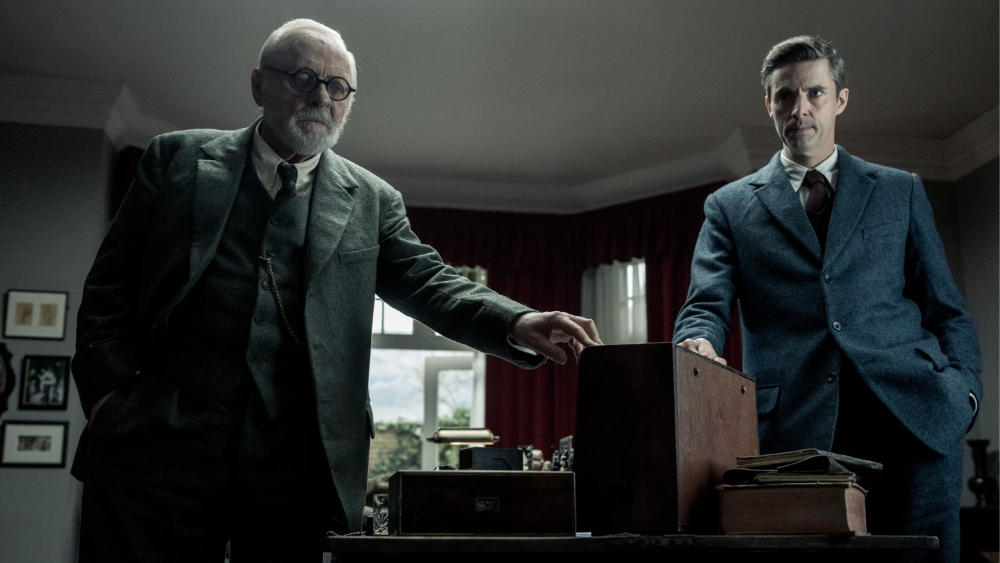Freud’s Last Session
by Christie Robb
Freud’s Last Session imagines the lengthy conversation that might have taken place had a young C.S. Lewis (author of the Chronicles of Narnia) taken a train down from Oxford to meet up with a dying Sigmund Freud to debate the existence of God.
It could have happened. An anonymous Oxford don did apparently chat with Freud toward the end of his life in 1939, right as England was declaring war on Hitler’s Germany. But history didn’t record the identity of the scholar.
Freud, the man behind the field of psychoanalysis, is a committed atheist and he’s keen to talk to Lewis (already a published author and famous Christian about town) about the origins and inner workings of a faith he’d come to as an adult.
Freud is played by Anthony Hopkins (who once played C.S. Lewis beautifully in 1993’s Shadowlands). He delivers the layered and nuanced performance you’d expect from someone as talented as Hopkins. Still, it manages to feel that he’s giving you Freud’s greatest hits instead of plumbing the depth of this controversial and legendary figure. (He’s shown chomping a cigar talking about regressing to his oral stage of development and absentmindedly fiddling with a pair of scissors after discussing the fear of castration.) But that’s not Hopkins’ fault. Hopkins finds both the fear and the playfulness sprinkled amidst the theory.
Matthew Goode plays Lewis and he is good. He manages to hold his own with Hopkins. Unfortunately, he doesn’t have nearly as much material to work with. He doesn’t expand much about Lewis’s philosophy. Hopkins gets all the best lines.
Freud’s Last Session is adapted from a stage play and you can feel the director/co-writer Matt Brown (The Man Who Knew Infinity) struggling with that legacy.
The film is beautifully set, almost a Pinterest board of all things Dark Academia. It’s shot in chiaroscuro—a high contrast technique that sets off a highlighted subject against a dark background. Perfect lighting for weighty discussions about the legacy of war, why bad things happen to good people, and why one’s daughter feels compelled to tell one about her genderbending S&M fantasies.
To adapt the material to film, Brown makes use of cutaways to what is happening elsewhere while the men chat—whether that is what is happening on the same day but elsewhere or flashbacks.
We see an overburdened Anna Freud (the doctor’s daughter, not his wife, although you’d certainly be forgiven for mistaking her for a spouse given the way the old man treats her) and flashbacks to the two central men’s formative years. However, the cutaways interrupt the flow of the debate. Although sometimes beautiful, they seem like a deflection and distraction from what might have been weightier revelations—like the subject was changed right as we were getting to the good stuff.
In the end, the film seems like a beautifully composed thought experiment, but it doesn’t exactly make for a satisfying story.


